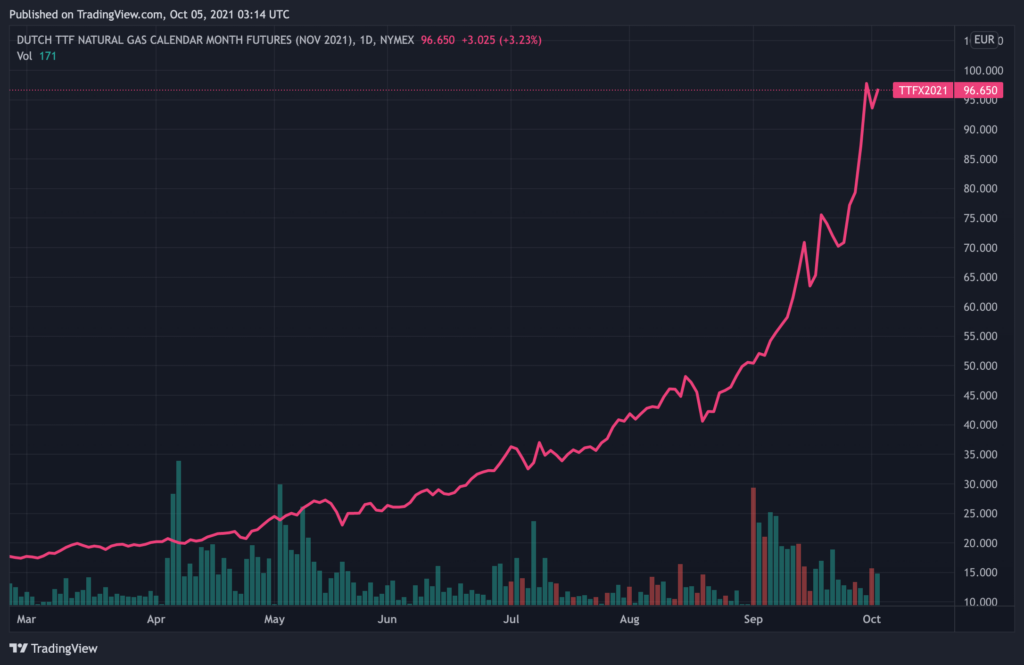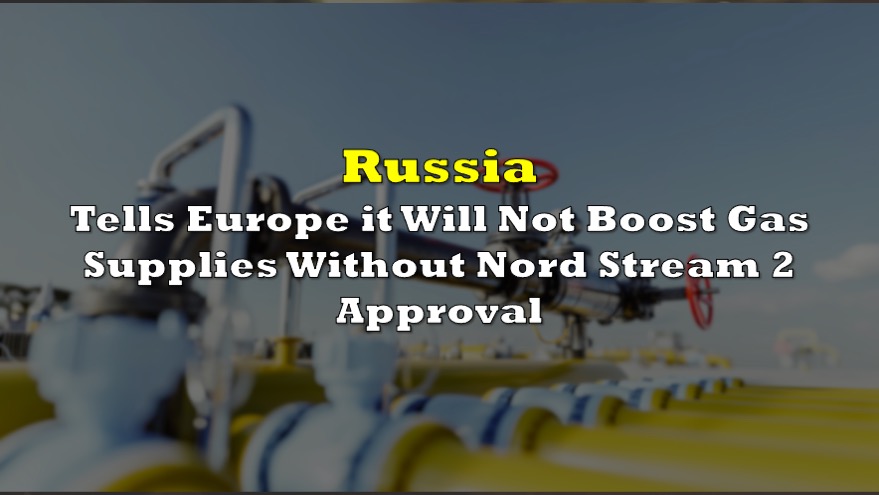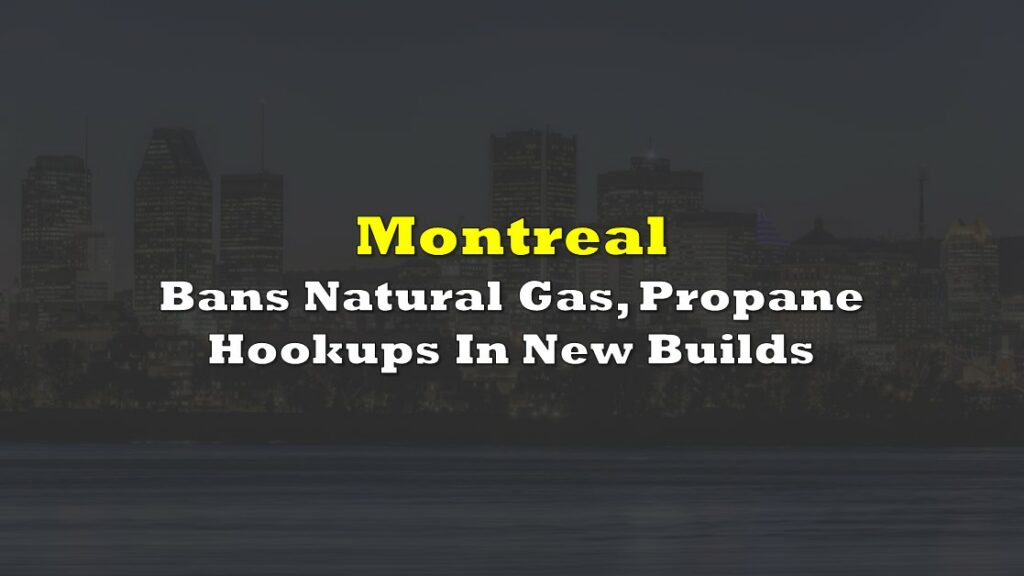It’s official: natural gas prices have gone completely mad.
Gas prices in Europe hit yet another record-high, soaring past $1,200 per 1,000 cubic meters on Monday, as the global energy crisis continues to spiral out of control. November futures on the TTF hub hit nearly €100 per megawatt-hour, and are expected to continue accelerating as demand significantly surpasses supply amid the reopening of EU economies and an approaching cold winter.

To further add salt to the wound, Brussels continues to delay the launch of natural gas supplies from Russia via Nord Stream 2, despite the final segment of the pipeline already being filled with gas ahead of the much-anticipated bureaucratic authorization. On Monday, Danish officials announced that the pipeline has been fully certified, and ready to begin operating; but, gas supplies will not begin pumping into Europe until regulators in Berlin give the final nod of approval.
However, Russia’s Deputy Foreign Minister Alexander Grushko on Saturday warned that the opponents of Nord Stream 2 are likely looking for “legal squiggles” in order to impede the final approval process indefinitely. Ukraine has been strongly opposed to the Russian pipeline, arguing the new form of natural gas transportation will force the country to forego billions of dollars in gas transit revenues that were originally possible via the Soviet-built network of overground lines.
The energy crisis, in the meantime, has spread from Europe and China to now Brazil and India. As reported by Bloomberg, catastrophic droughts across Brazil have caused the country’s hydroelectric generation systems to run dry, which will likely result in power rationing in the event that energy imports from Argentina and Uruguay are not increased.
In an effort to abate a complete power grid collapse, Brazil has begun to restart its natural gas generators to make up for the hydroelectric power shortcomings. This will cause the country’s government to turn to a dramatically tightened natural gas market for supplies, which will send prices escalating even further.
India, for its part, is facing a historically low supply of coal, as its 135 thermal power plants are now running on four days of supply as of Friday, instead of a 13-day supply. If coal supplies are not restocked in time, the country will be forced to cut power to energy-intensive companies and residential properties.
With the energy crisis making its way across the globe— beginning in Europe and Asia and now widening to India and South America— for all different reasons of course, the final ingredient for a full-out global energy catastrophe would be panic hoarding by governments— which it appears that China has already initiated.
Information for this briefing was found via the companies mentioned. The author has no securities or affiliations related to this organization. Not a recommendation to buy or sell. Always do additional research and consult a professional before purchasing a security. The author holds no licenses.








